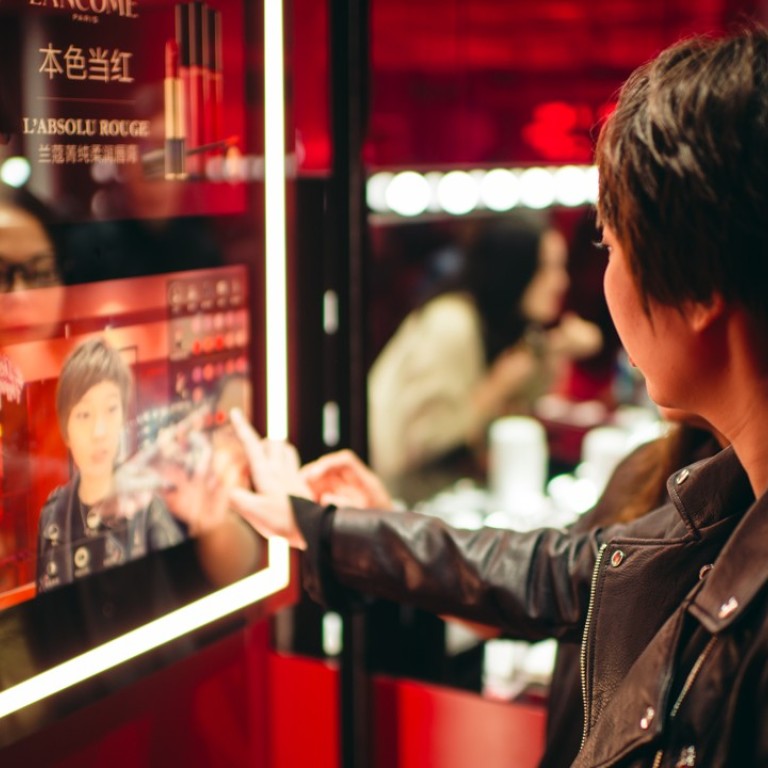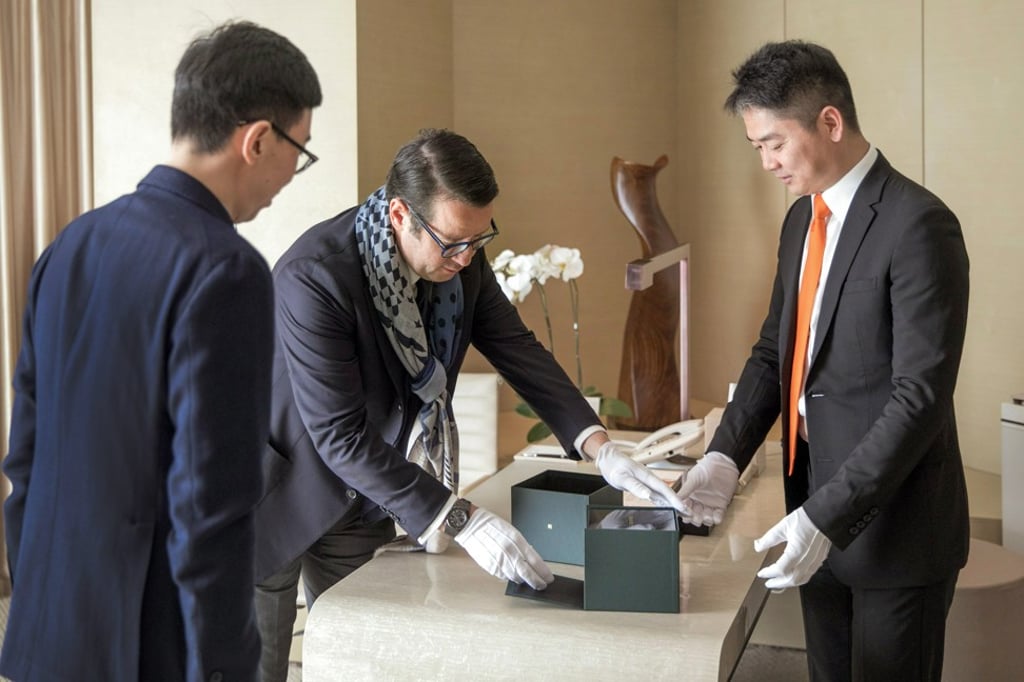Are Chinese e-commerce platforms ready for a luxury update?

From TMall's Luxury Pavilion to JD.com's Toplife, China’s e-commerce giants are expanding into the luxury sector through customer insights, hi-tech experiences, and exclusive offerings
One lucky Audemars Piguet fan in Beijing got more than he bargained for. After placing an order on the brand’s WeChat store, to his surprise, the merchandise was delivered to him by the brand’s CEO, François-Henry Bennahmias, and Richard Liu, founder of e-commerce giant JD.com.
The Swiss luxury watchmaker’s first foray into e-commerce in China, with technical support provided by JD, is one of the shining examples of how luxury brands are embracing e-commerce across the nation. Special editions of Audemars Piguet’s iconic sporty watches – priced from 149,000 yuan to 463,000 yuan (HK$183,100 to HK$569,000) – available on the WeChat store can be bought using WeChat pay.
“Online sales are growing day by day,” Bennahmias says. “We have customers who would buy a 60,000 yuan watch online. It’s a matter of building trust every day.”
Early adopters such as Secoo have been tapping the Chinese luxury e-commerce market since 2012. More recently, Chinese online marketplace giants JD and Alibaba jumped on the bandwagon to launch platforms dedicated to luxury brands, having their share of the pie through better customer insights, enhanced shopping experiences and exclusive online offerings. Alibaba Group is the owner of the South China Morning Post.
Andrew Robb, chief operating officer of online fashion giant Farfetch, says the main factor driving the growth of the Chinese e-commerce market is the increasing popularity of mobile phones and the WeChat app. “It is redefining how consumers and brands interact,” he says. “The Chinese fashion consumer has become more sophisticated, focusing less on price and much more on quality, selection and service.”
With more domestic and international e-commerce giants upping their game in China, the eco-system of Chinese luxury e-commerce is evolving quickly.
Farfetch strengthened its development in the Chinese luxury market by collaborating with JD, which invested US$397 million in Farfetch to form a strategic partnership in 2017. In August last year, Alibaba launched Luxury Pavilion – a by-invite-only e-commerce platform within the Tmall marketplace, and it recently updated the service with a VIP loyalty club. JD, too, unveiled an e-commerce app called Toplife last October.
